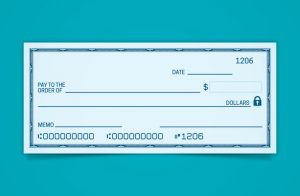How Entitled Millenials Send Payments
What's a "check"? Try Venmo, PayPal, Google Wallet, or Facebook Messenger.

Hint: not using one of these.
Today, if you ask anyone under 35 for payment via check, you might get a perplexed look and a response like this:
“Uh… I don’t use checks. Can I Venmo you instead?”

Is The Future Of Law Distributed? Lessons From The Tech Adoption Curve
If you’re wondering “What the heck is a Venmo?”, you might need a crash course on the payment methods of the digital generation.
More people are paying online for goods and services, which can be advantageous in several ways. Online payments are processed instantaneously regardless of where the payor lives. The funds are then transferred to your bank account within one business day. Compare this to waiting several days for a check. And there is the possibility that the check could have been lost or misplaced by the carrier.
Since the payment is processed only when the funds are available, you won’t have to worry about insufficient funds or a check that might bounce. Also, there are no hold periods, which some banks impose on certain checks.
For solo and small-firm attorneys who work primarily from home, accepting online payments can minimize trips to the virtual office just to pick up a check.
Sponsored

The Business Case For AI At Your Law Firm


Legal AI: 3 Steps Law Firms Should Take Now

Early Adopters Of Legal AI Gaining Competitive Edge In Marketplace

Navigating Financial Success by Avoiding Common Pitfalls and Maximizing Firm Performance
Nowadays, people are paying on the go using their smartphones. Below are a few of the more popular and reliable payment apps. While I will give a general and brief description of each, if you plan to use them in your practice, make sure to read the terms and conditions carefully. But most importantly, establish a business account if required, know the credit card transaction fees, and review their privacy policies.
Venmo – As mentioned above, Venmo has become a verb, which is a sign of millennial acceptance. On Google Play, Venmo has been downloaded five million times, with an average rating of 4.7/5.0. Venmo can be used to request and send payments. Once payment is sent to your Venmo account, the funds can be transferred to your bank account within a few business days.
Transfer limit: $2,999 weekly rolling limit.
Warning: Someone at Venmo thought it would be cool to display a person’s financial transactions to their social network and even the public (although the exact dollar amounts are not disclosed). Make sure to set your privacy settings to private as this can be easily missed. It might be a good idea to tell your client to use happy face emojis instead of “divorce lawyer” on the payment description line.
Bank transfer – In the past, business owners would tell their clients or customers to deposit checks directly to the business bank account.
Sponsored

Navigating Financial Success by Avoiding Common Pitfalls and Maximizing Firm Performance

Is The Future Of Law Distributed? Lessons From The Tech Adoption Curve
Online bank transfers generally have no transfer limitations. Because of this, they are still the preferred payment method for large money or international transactions. Most are done through wire transfers, which results in a fee to both the transferor and transferee.
Today, banks have made it easier for their clients to conduct many transactions online. Most banks allow payment via email with no transfer fees.
You or your office staff should become familiar with how your bank accepts online payments in order to avoid unnecessary delays and fees.
PayPal – Before Elon Musk pursued space exploration and popularlized electric cars by making them status symbols for rich people, he started PayPal, which revolutionized electronic payment through the internet.
Since PayPal has been in existence for almost 20 years, older people may still have PayPal accounts. Also, the payment limitations are more generous.
Transfer limits: $10,000 per transaction and unlimited total transfers.
Google Wallet – Like Venmo, Google Wallet is very easy to set up and use. It can be used to request or send payments, and transfers take one to two business days. Google Wallet also accepts credit card payments for a fee.
Google Wallet has higher transfer limits than Venmo. Also, since most people use some form of Google’s services and have a Gmail account, they can set up a Google Wallet account quickly using their existing personal information.
Transfer limits: $9,999 in one transaction or up to $50,000 in five days.
Warning: Stay away from this unless you have no other way to receive payment. Facebook does not condone using Messenger’s money transfer service for business purposes. If you do, you might lose the right to use Facebook’s other payment features. So if you use Facebook’s ad services, you should avoid accepting payment this way.
On the other hand, Facebook Messenger could be allowable if a client offers to reimburse you for dinner or a round of golf.
The paper check is becoming obsolete. I for one will not miss the illegible handwriting, ink smears, and occasional mustard stains. Knowing today’s popular payment apps can ensure timely payments from millennials before their attention span (and their digital wallets) switch to the next iPhone accessory.
Shannon Achimalbe was a former solo practitioner for five years before deciding to sell out and get back on the corporate ladder. Shannon can be reached by email at sachimalbe@excite.com and via Twitter: @ShanonAchimalbe.








